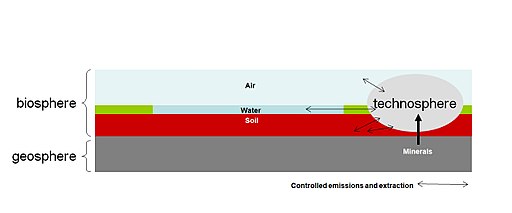 [This post completes a set of three on pesticides, part of our current series on Environmental Justice and Environmental Health. The others, by Jennifer Ross, include an overview of insecticides, and a talk on the impacts of insecticides in south Texas.] Continue reading
[This post completes a set of three on pesticides, part of our current series on Environmental Justice and Environmental Health. The others, by Jennifer Ross, include an overview of insecticides, and a talk on the impacts of insecticides in south Texas.] Continue reading
Author Archives: Peter Soppelsa
Climate Change, the Anthropocene, Health, and Disease

Empty classroom. Photo by Benson Kua (CC BY-SA 2.0)
The Dream Course, Interrupted
With the end of the spring semester, the Climate Change in History Dream Course came to a close. The course was neatly broken in two by COVID-19, which was officially declared a pandemic in mid-March, just as Continue reading
Paul Edwards on Infrastructure, Time, and Risk in Climate Science and Politics
Our final guest lecture for Climate Change in History came from Paul Edwards of Stanford University, a leading expert in the history of climate science who has served on the IPCC. Edwards blends science and technology studies (“STS”) with Continue reading
Candis Callison on the Crisis of Climate Change
Last week’s Dream Course talk came from Candis Callison of the University of British Columbia, an expert on Science and Technology Studies, Indigenous Studies, and journalism. She argued that Continue reading
Clark Miller on Solar Futures
After having to cancel Clark Miller’s in-person guest lecture for our Climate Change in History Dream Course because of the COVID-19 epidemic, we were excited to reschedule a virtual visit, which took place via Zoom on Tuesday, April 14, 2020. Here is a video recording of Miller’s virtual lecture, and links to Continue reading
Decentering the Little Ice Age

Last week, our first guest speaker for the Climate Change in History Dream Course was Dr. Gregory Cushman, associate professor of international environmental history at the University of Kansas. Cushman reported on Continue reading
Climate Change in History Dream Course
This week, Dr. Suzanne Moon and I begin team-teaching “Climate Change in History” (HSCI 3473: History of Ecology and Environmentalism) as a Presidential Dream Course, a program which allows University of Oklahoma faculty to upgrade an existing course into its dream version, with guest lectures Continue reading
Sensing High Water in Paris
In 1910 Paris suffered its second largest flood since 1658. Today the city is inundated by a public memory of that event of just over a century ago. Continue reading
Sensing High Water in Venice
Flood warning siren in Venice (from Sounds Like Noise)
Visiting Venice this summer suggested some intellectual bridges between cities (see our previous series on the Urban Anthropocene), and our new theme (Perceiving the Anthropocene). How do cities help us perceive the Anthropocene— Continue reading
Urban Metabolism and Degrowth, part 2
THIS POST IS PART OF OUR SERIES ON URBAN METABOLISM.
It continues Part 1’s discussion of two readings: “Democracies with a future: Degrowth and the democratic tradition,” by Marco Deriu, and “De-growth: Do you realise what it means?” by Ted Trainer
Co-authored with Robert Bailey

The Party for Degrowth, rally in Lyon, 2007. © Yann Forget / Wikimedia Commons / CC-BY-SA-3.0.
Urban Metabolism and Degrowth, part 1
Cities in the Technosphere
Two recent special sections of the journal The Anthropocene Review offer a set of interdisciplinary reflections on the “technosphere.”[1] In this post, I will discuss several of the contributions in order to ask Continue reading
Historicizing the Anthropocene: A Peek at Paris
Historians love questions of dating and chronology, and there are two questions about dating the Anthropocene. First, stratigraphy and other sciences have been searching for physical evidence for when Continue reading





You must be logged in to post a comment.